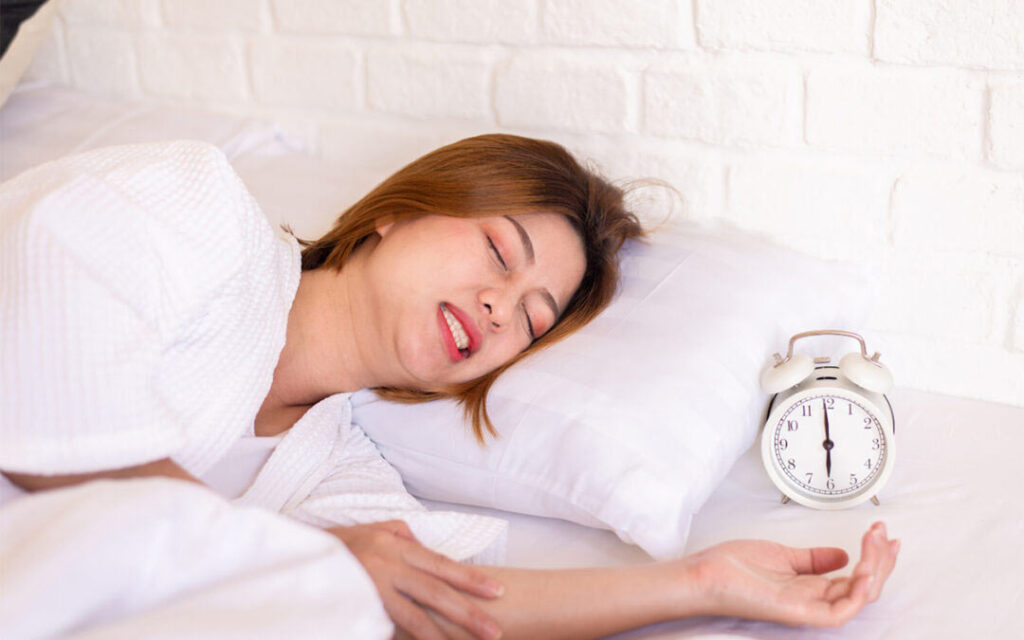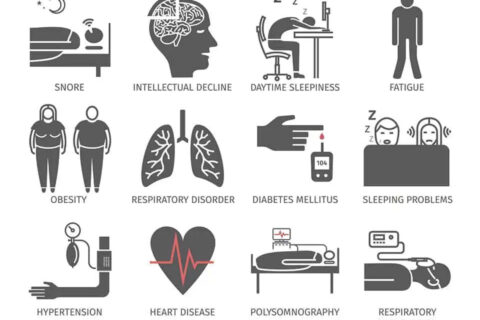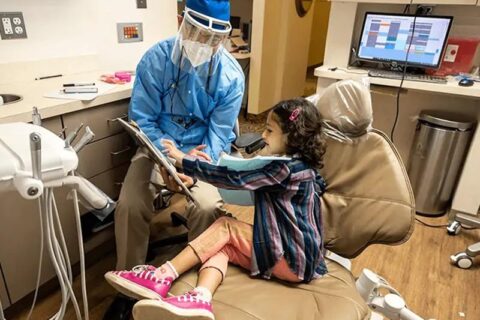How Does Teeth Grinding Affect Sleep?

Teeth grinding, also called bruxism, is a condition that causes an individual to clench, grind, or gnash his or her teeth together. Usually, this occurs during sleep, but some individuals with bruxism may find themselves clenching or grinding their teeth during stressful times throughout the day. As such, there are two subtypes of bruxism: sleep bruxism and awake bruxism.
Keep reading to learn more about teeth grinding, including the symptoms to watch out for, existing risk factors, and what to do if bruxism is affecting your sleep quality.
Symptoms of Bruxism
Patients who are inadvertently grinding their teeth at night might experience the following side effects:
- Worn, chipped, loose, or broken teeth
- Audible grinding sounds that housemates may notice (bruxism may produce a sound that resembles creaking, scraping, or dragging)
- Damaged tooth enamel
- Tooth pain or sensitivity
- Tired or sore jaw muscles
- Jaw, face, or neck pain
- Earache-like pain near the jaw hinge
- Headaches
- Sleep disturbances
- Bruxism Risk Factors
Certain factors can increase an individual’s risk of developing bruxism. Such risk factors include the following:
- Heredity (family members who also have bruxism)
- Stress
- Using certain medications
- Age
- Anxious or hyperactive personality types
- The presence of other disorders like Parkinson’s disease, dementia, GERD, night terrors, ADHD, sleep apnea, etc.
How Bruxism Impacts Sleep
Depending on how severe an individual’s sleep bruxism is, the condition has the capacity to interrupt sleep. People who grind their teeth while they sleep increase their likelihood of experiencing poor sleep quality. In addition, bruxism can also signify the presence of other sleep-breathing disorders like sleep apnea or loud snoring that’s unrelated to sleep apnea.
In mild cases, bruxism may not need professional intervention, but for patients with moderate to severe teeth grinding issues, it’s a good idea to book an appointment with an experienced dentist.
If you’re experiencing headaches, jaw pain, tooth wear, and sleep disturbances, it’s in your best interest to seek professional assistance. A reputable dentist who’s experienced in treating sleep-related conditions can reduce your symptoms and help protect your oral health.


